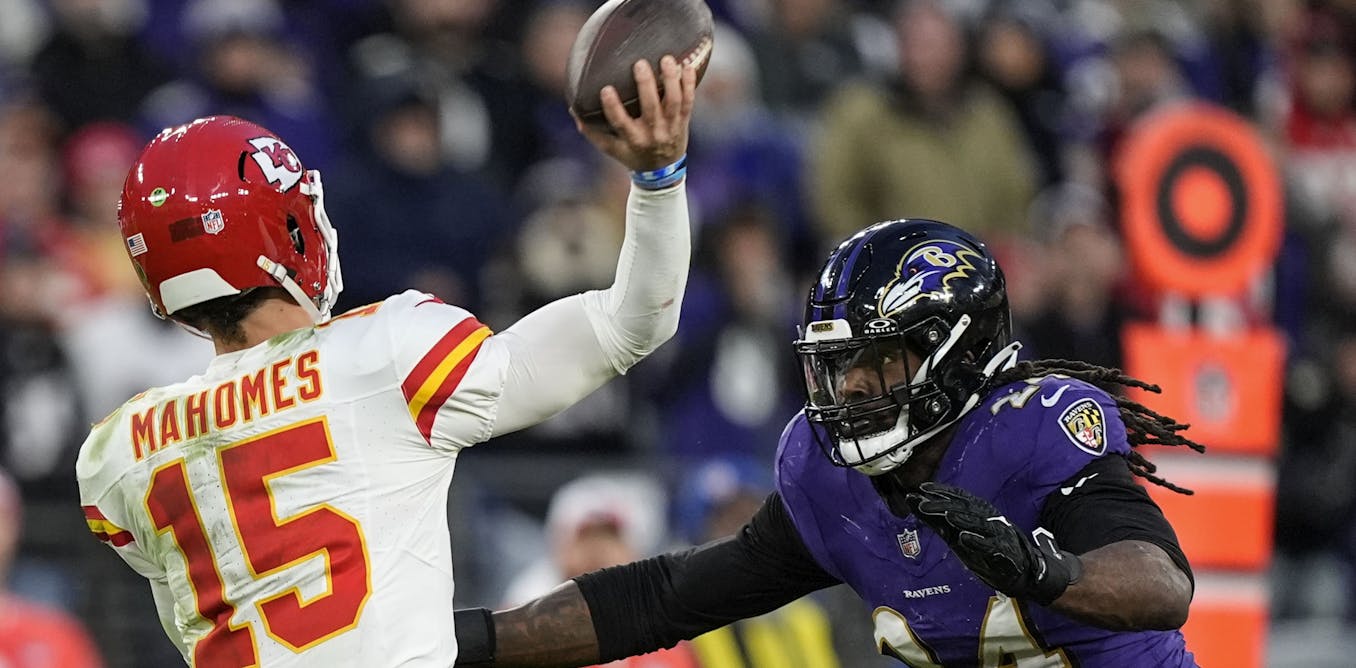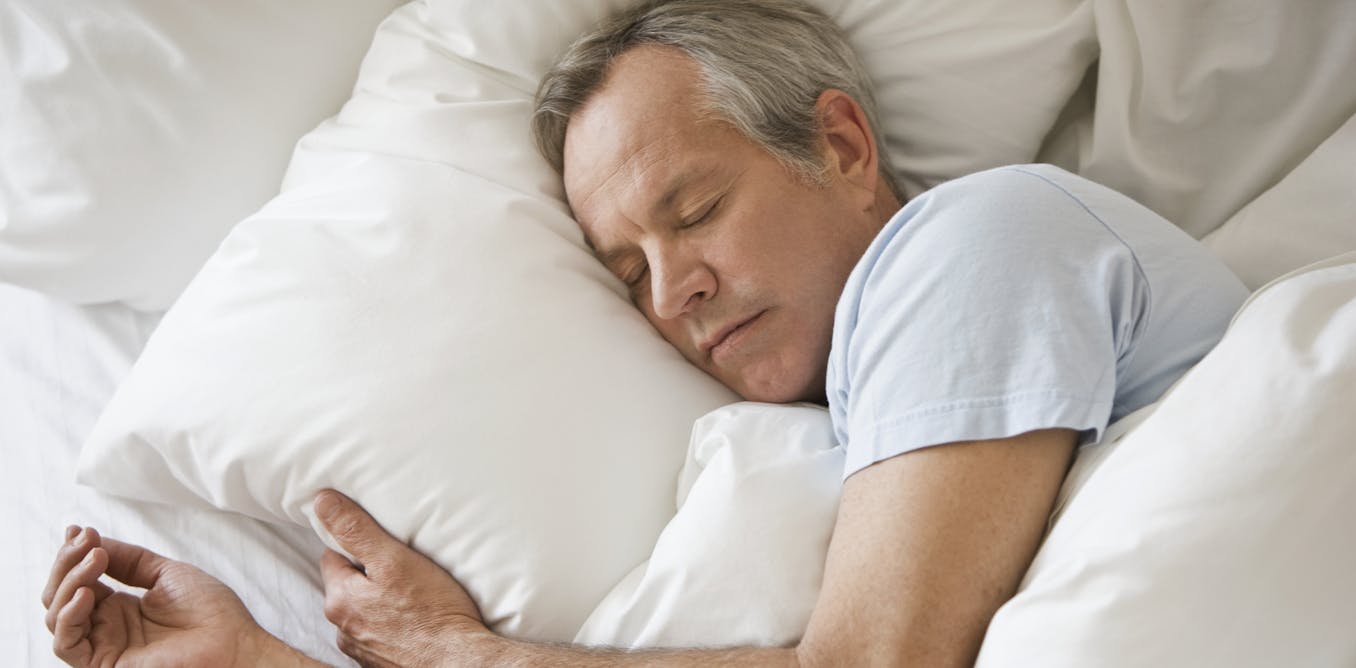
Sleep can give athletes an edge over competitors − but few recognize how fundamental sleep is to performance
Studies show college athletes sleeping less than 7 hours per night are almost twice as likely to be injured when compared with athletes sleeping more than 8 hours.
Jan. 31, 2024 • 10 min • Source
In the adrenaline-packed world of professional sports, the power of sleep rarely gets adequate attention.
A healthy sleep pattern can be a stealthy game plan for athletes to gain an edge over their opponents. Only a few top elite athletes know the secret of early bedtimes for optimal performance.
Sleep is vital not only for keeping the mind sharp and body healthy but also for excelling in all fields in life – whether in the classroom , on the battlefield or in other professional arenas .
As a neurologist specializing in sleep medicine at the University of Pittsburgh, I have devoted my career to understanding and advocating for the importance of sleep health.
Here are some key facts to understand why sleep matters.
The critical role of sleep in performance
Sleep is a complex, cyclical process that progresses through several stages, each with distinct characteristics and functions. Initially, it begins with light sleep, encompassing stages 1 and 2 , where the body starts to relax and brain wave activity begins to slow down.
These stages are followed by deep sleep, also known as slow-wave sleep , where the body undergoes significant restorative processes. The final stage is rapid eye movement , or REM sleep, characterized by vivid dreams and increased brain activity. Typically, a person cycles through these stages four to six times each night, with each cycle lasting approximately 90 minutes.
Sleep is when our bodies heal. Deep sleep helps repair muscles and bones through several key mechanisms, including the release of human growth hormone – a protein produced in the pituitary gland – and various anti-inflammatory agents .
Human growth hormone is a key player in muscle development, tissue repair and metabolism , and is it vital for maintaining physical health. It significantly enhances the body’s capacity for self-repair, be it following an intense sports event or recovering from a sports-related injury.
In addition, sleep helps your brain to recalibrate through the waste-clearing glymphatic system , which is part of the central nervous system. Think of it as a dishwasher in your brain, flushing out waste products, including neurotoxic proteins such as amyloid-beta , abnormal tangles of a protein called tau and alpha-synuclein proteins .
All three of those proteins have direct association with neurodegenerative diseases such as Alzheimer’s dementia and chronic traumatic encephalopathy , a disorder thought to be caused by repeated head injuries. For athletes, maintaining proper brain health and cognitive function is paramount.
In addition, deep sleep strengthens the immune system to help keep us healthy and free of illnesses.
REM sleep is the most active stage of sleep, the one in which we experience dreams. This contrasts with deep sleep, where the brain enters a state of synchronized slow waves, indicative of restorative rest. REM sleep is essential for memory and emotion processing , which help with recall and reducing anxiety.
Athleticism by its purest definition and overall body control can often be linked to the benefits of Stage 2 sleep, which has been shown to play an instrumental role in the consolidating of motor sequence memories and physical skills learned during practice.
To fully benefit from these sleep cycles, adults need seven to nine hours of sleep per night. This duration ensures that they complete the necessary four to six sleep cycles, allowing their bodies and minds to fully experience the restorative effects of each sleep stage, which is essential for optimal health and performance.
How sleep helps prevent injuries
In professional sports, more training and higher pressure increase the chances of getting hurt. Research shows that collegiate athletes who sleep less than seven hours per night are nearly twice as likely to get injured when compared with those who sleep more than eight hours. In a game like football, where split-second decisions can lead to a touchdown or interception, a well-rested brain is the best tool for quick thinking and staying free of injury.
Good sleep also cuts down on the risk of concussions , which, sadly, are pretty common in sports. Up to 3.8 million cases of concussions occur annually in the U.S. during competitive sports. Studies have shown that sleepy athletes are nearly three times more likely to suffer a concussion.
Sleep deficits have been linked to decreased performance in every cognitive measure, including vigilant attention, spatial cognition and tasks involving inhibitory control . On the sports field, this translates to sleepy athletes making more impulsive and risky decisions.
Enhancing athletic performance through ample sleep
Athletes of any level, even at the highest levels of competition, could gain a competitive edge by giving more attention to the value of sleep. Studies focusing on sprinters , tennis players and endurance athletes have found that sleep can enhance the following four key abilities:
-
Speed, strength and endurance : More sleep can lead to faster sprint times, greater strength and higher endurance , which are crucial in sports where every second counts. Adequate sleep enhances muscle recovery and energy restoration, which are crucial for the strength and power needed in sprinting.
-
Accuracy and reaction time: One study found that tennis players who got more sleep showed better accuracy and faster reaction times . Increased sleep enhances brain function by boosting cognitive processes such as focus, decision-making and sensory perception. Well-rested individuals also experience better neuromuscular coordination , essential for precise movements and quick responses.
-
Cognitive skills and inhibitory control: Good sleep helps with strategizing and decision-making through improved recall and a clearer mind, thanks to the cleansing action of the glymphatic system. Sleep deprivation, on the other hand, can impair cognitive abilities, as evidenced in research involving NASA recruits .
-
Pain tolerance: More sleep can lead to increased pain tolerance , playing a vital role in the quality of life and recovery process following injuries or intense physical exertion. While the exact mechanisms are complex and involve a two-way relationship between sleep and pain, this benefit is particularly important in physically demanding sports. Improved pain tolerance can aid athletes not only in recovery but also in maintaining mental well-being, allowing them to focus on rehabilitation and training without being overly hindered by discomfort.
Essential sleep tips for peak performance
Here are some practical and effective sleep tips tailored for athletes, designed to help them harness the power of sleep for top-notch performance in their respective sports:
-
Consistency and quantity: A regular sleep schedule is crucial for peak performance. Athletes should make sure they’re getting eight to 10 hours of sleep, not just the day before a big game but every day throughout the competitive season.
-
Environment: A sleep-conducive environment – dark, quiet and cool – is essential to getting a restful night’s sleep.
-
Pre-sleep routines: Relaxing activities such as reading, stretching and meditation before bed can enhance sleep quality.
-
Screen limits: Reducing screen time before bed helps maintain natural sleep rhythms and the production of melatonin.
-
Dietary considerations : Avoiding caffeine, alcohol and heavy meals before sleep aids in restfulness.
-
Strategic napping : Short, well-timed naps can be a valuable tool for recovery and achieving peak performance.
-
Sleep banking: To prepare for travel when you anticipate reduced sleep, consider sleeping longer beforehand. This can be achieved either through extra napping or by extending your regular nightly sleep.
It’s important for any athlete to remember that sleep isn’t a weakness. Success as an athlete is about more than just physical training and tactical preparedness; it’s also about harnessing the power of sleep for optimal performance.
Joanna Fong-Isariyawongse does not work for, consult, own shares in or receive funding from any company or organization that would benefit from this article, and has disclosed no relevant affiliations beyond their academic appointment.


